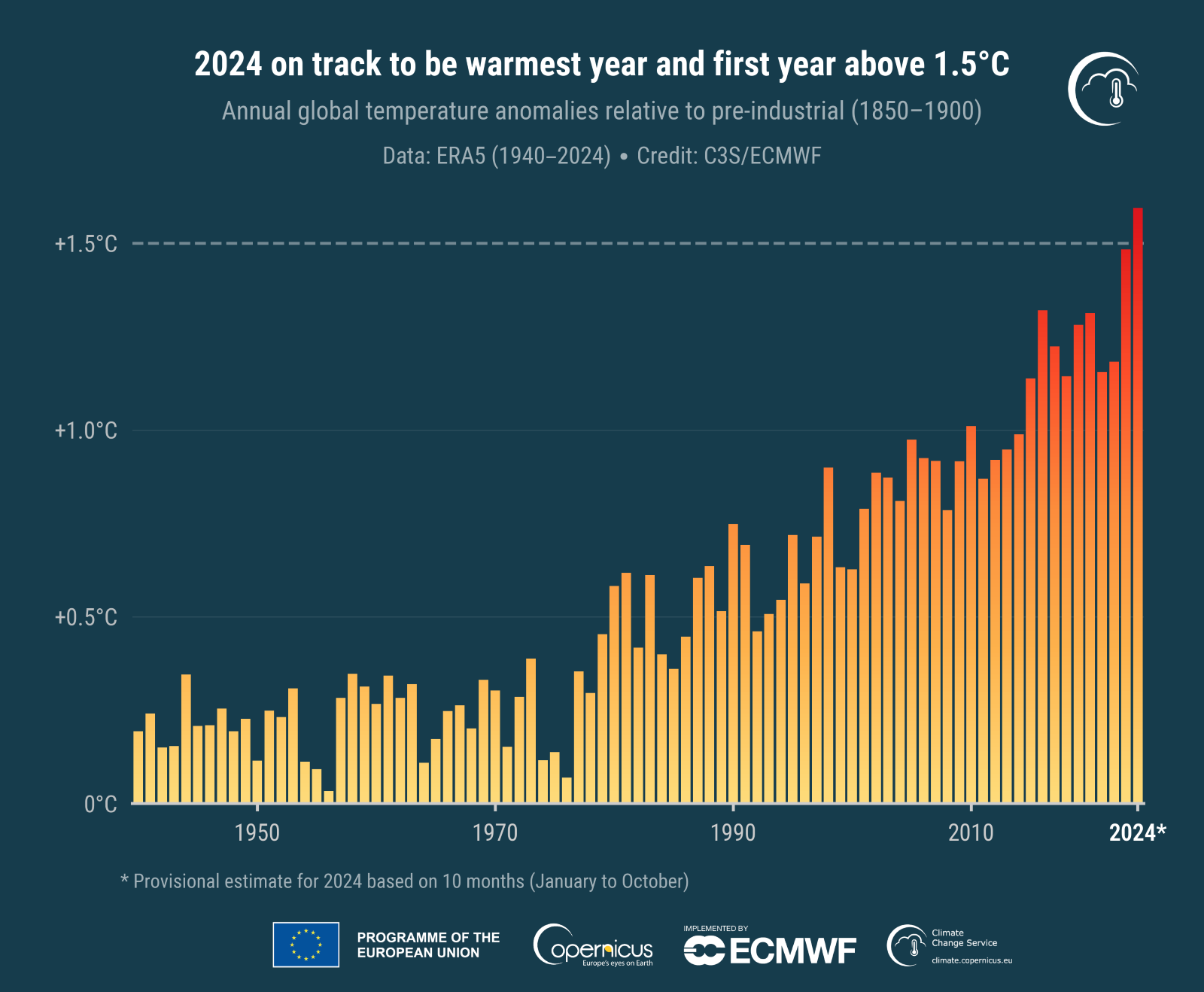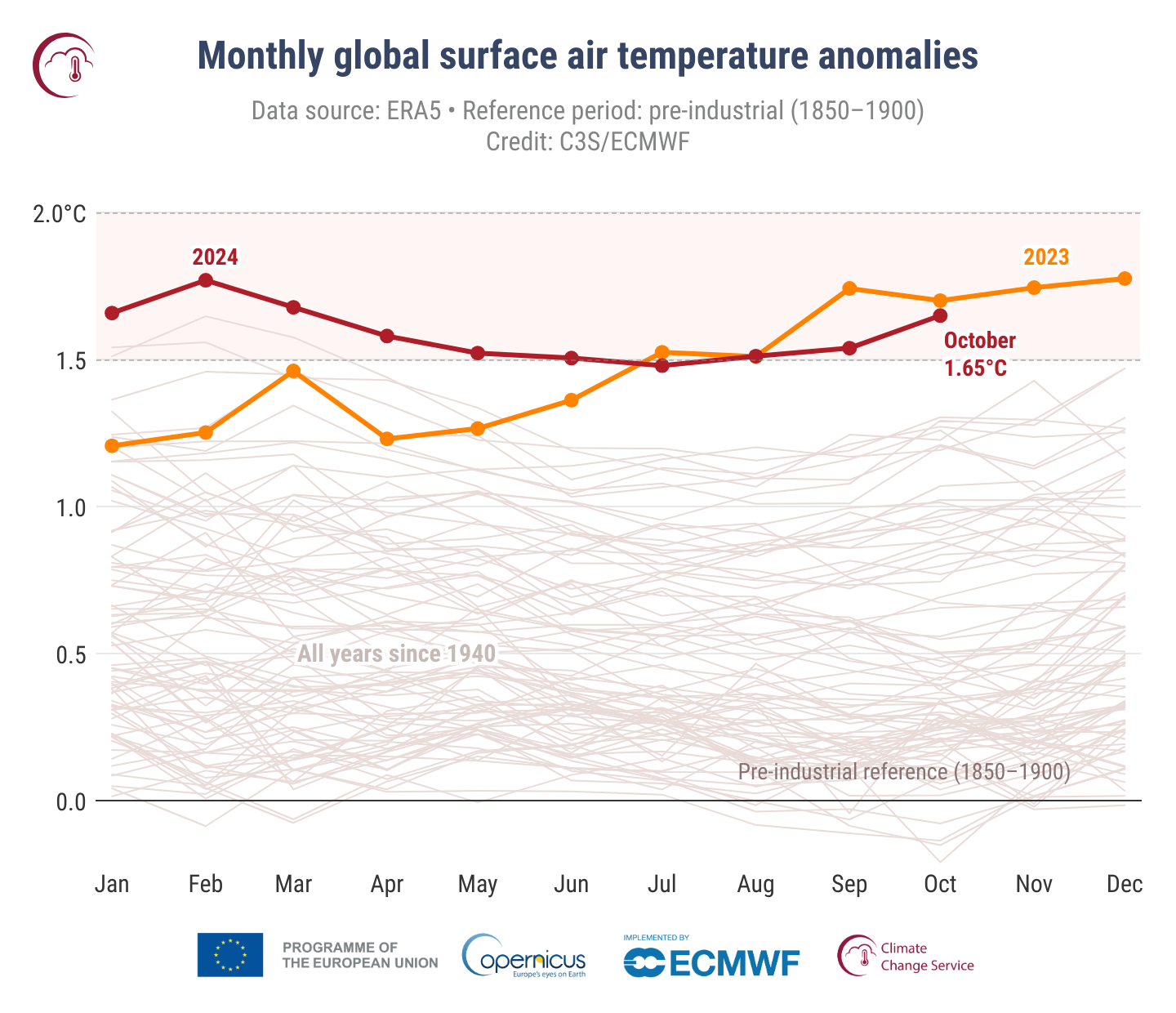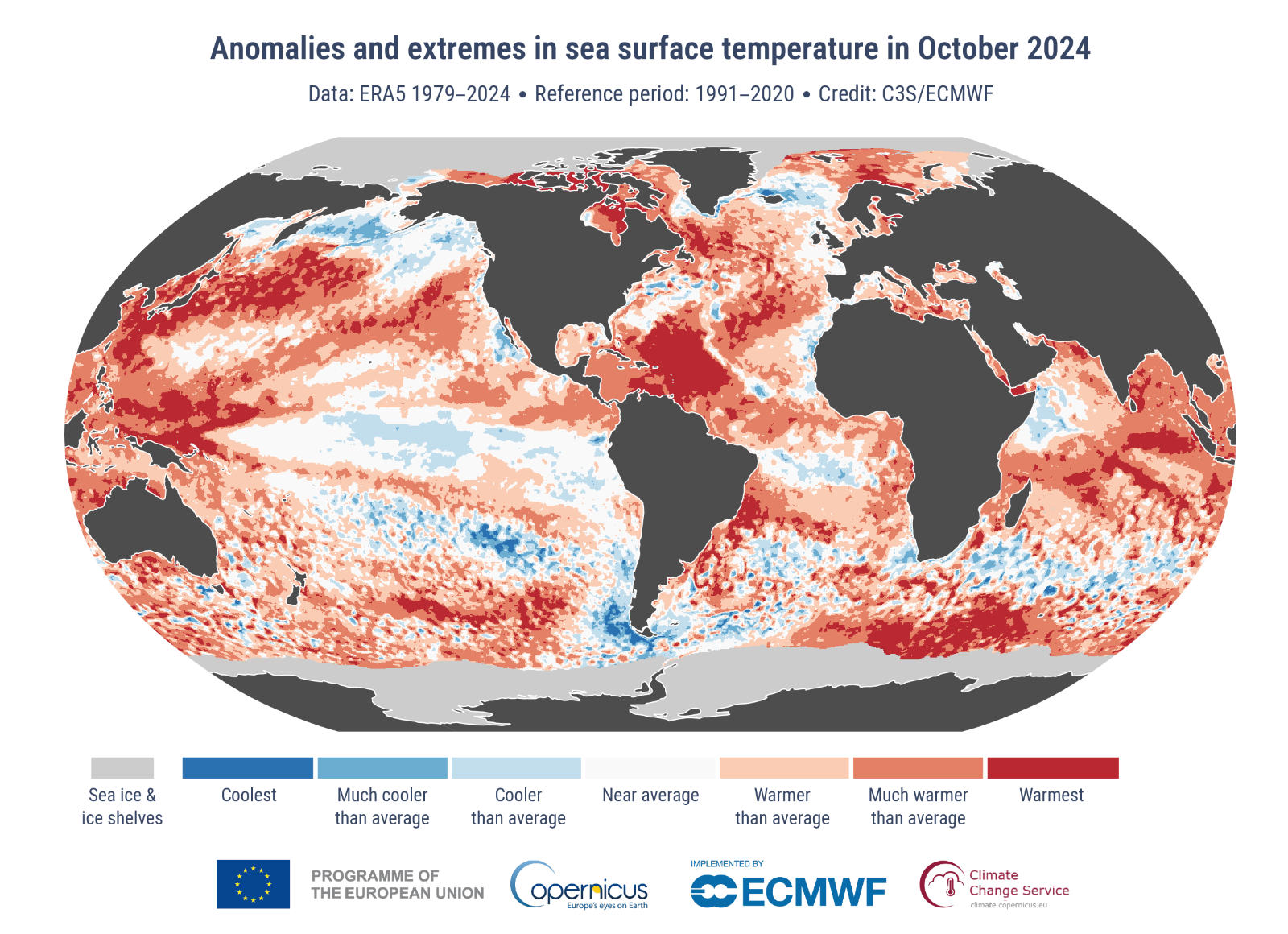This year is on track to become the hottest on record, with global temperatures poised to breach the critical 1.5°C threshold above pre-industrial levels for the first time. Data from the EU’s Copernicus Climate Change Service (C3S) reveals that average temperatures from January to October were 0.71°C above the 1991-2020 period, surpassing previous records.
2024 likely hottest year, surpasses 1.5°C
Scientists at C3S say it’s “virtually certain” 2024 will be the warmest year on record, exceeding 1.5°C above pre-industrial levels, likely peaking at 1.55°C rise.
Samantha Burgess, Deputy Director of C3S, commented, “After 10 months of 2024, it’s virtually certain that 2024 will be the warmest year on record and the first to exceed 1.5°C above pre-industrial levels. This marks a new milestone in global temperature records and should raise ambition for the upcoming COP29 climate conference.”
The ERA5 dataset used by C3S shows October 2024 was the second-warmest October on record, just behind October 2023. The global surface air temperature averaged 15.25°C for the month, which is 0.80°C higher than the 1991-2020 October average and 1.65°C above pre-industrial levels.
In the past 16 months, global temperatures have exceeded 1.5°C above pre-industrial levels for 15 months, marking an extended period of unprecedented warmth.

October temperatures in Europe reached 10.83°C, making it the fifth-warmest October on record. Unusually high temperatures were observed in northern Canada, the western U.S., Japan, Tibet, and Australia. In contrast, Greenland and Iceland saw cooler conditions.
October ocean temperatures hit record highs
The October 2024 global sea surface temperature (SST) was 20.68°C, the second-highest for the month. This reflects a persistent warming trend in ocean temperatures, contributing to intense marine heatwaves. While some Pacific areas showed cooler temperatures suggestive of La Niña, most regions experienced continued warming, especially in the Atlantic and Indian Oceans.

In October, Arctic sea ice was at its fourth-lowest extent, about 19% below average, with anomalies in the Barents Sea and Canadian Archipelago. Antarctic sea ice also reached record lows, marking an 8% deficit compared to historical averages.
This year’s unprecedented warmth has caused extreme weather events and changing precipitation patterns. In Europe, Spain faced torrential rainfall, with Valencia seeing deadly flash floods that claimed over 200 lives. Conversely, the United States and central Australia faced severe droughts, while Florida grappled with back-to-back hurricanes, Hurricane Milton and Hurricane Helene.
Hydrological shifts were notable, with heavy rainfall in Taiwan, southern China, and western Australia, contrasting with drought in southern Africa and Madagascar.
Paris Agreement urges strict temperature limits
The Paris Climate Agreement calls for countries to limit temperature increases to “well below” 2°C and aim for 1.5°C above pre-industrial levels, to avoid the worst climate change impacts. Temporarily breaching this threshold signals a critical warning, as scientists and advocates urge stronger measures to mitigate and adapt to climate risks.

Mike Childs, head of science, policy, and research at Friends of the Earth, emphasized, “Our ailing planet is in crisis. The time for delay is gone. We need global leaders to smash the emergency glass and do everything to prevent further harm.”
Childs called for accelerated action toward a low-carbon transition and urged countries like the UK to implement robust climate and nature targets, including measures to prepare communities for future climate impacts.
As world leaders prepare for the COP29 summit in Azerbaijan, the C3S data reminds us of the urgent need to address the climate crisis. The World Meteorological Organization (WMO) will release its analysis of 2024’s global temperatures during the conference, adding insights.
Support us to keep independent environmental journalism alive in India.
Keep Reading
Govt shelves elephant census, population drops 20% in 5 years
Wildlife SOS mourns passing of Suzy, 74, oldest rescued Elephant
Asian Elephants display complex mourning rituals similar to humans: study
Asian Elephant populations threatened by rapid ecosystem decline
Follow Ground Report on X, Instagram and Facebook for environmental and underreported stories from the margins. Give us feedback on our email id greport2018@gmail.com.
Don’t forget to Subscribe to our weekly newsletter, Join our community on WhatsApp, and Follow our YouTube Channel for video stories.






